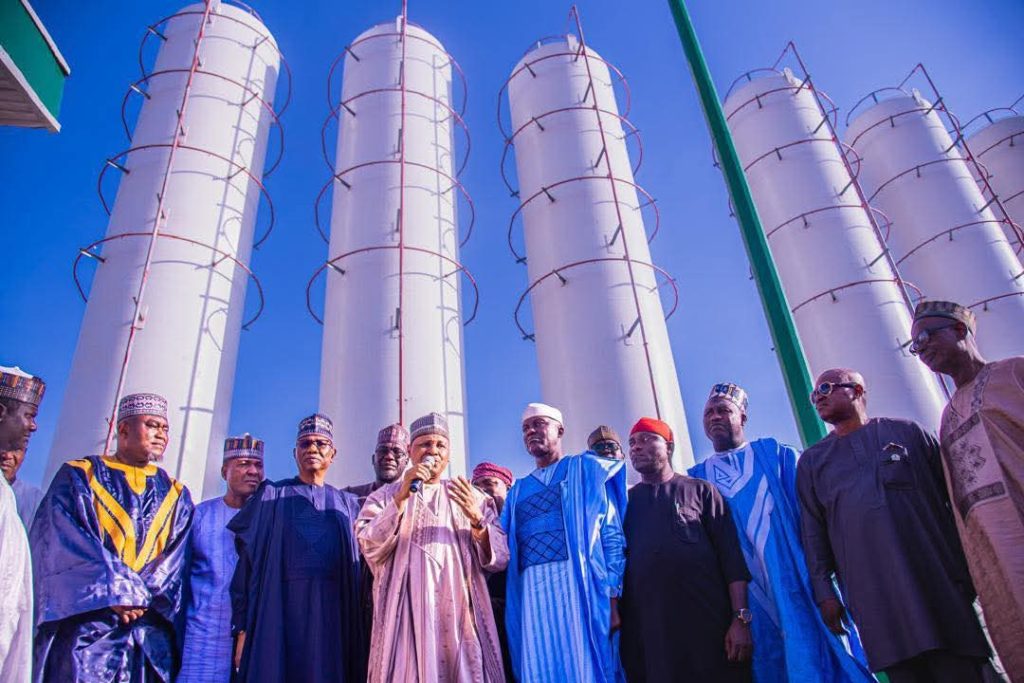The Minister of Information and National Orientation, Mohammed Idris, has declared that the reform agenda of President Bola Tinubu’s administration is generating substantial resources.
He said the reform is enabling state governments to execute significant infrastructure and people-centric projects.
Idris made the assertion on Thursday while leading Commissioners of Information from All Progressives Congress (APC)-governed states on a project inspection tour in Borno State, held on the sidelines of their Quarterly Strategic Meeting.
READ ALSO: Idris: Patriotism is key to rebuilding Nigeria’s moral fabric
“The reform agenda of Mr President is working. It’s putting resources into the coffers of the subnationals so that they can use it to work for the people,” Idris stated.
The delegation toured several key federal and state projects demonstrating the impact of increased fiscal allocation.
At the completed University of Maiduguri 12MW Hybrid Solar Plant, the Vice Chancellor, Mohammed Mele, highlighted that the facility meets the energy needs of the university and its teaching hospital, resulting in a monthly savings of N170 million previously paid to the Electricity Distribution Company.
The plant was developed by the Rural Electrification Agency (REA) with World Bank support.
The team also visited the 50MW Maiduguri Emergency Power Plant, which has been ramped up to full capacity by the current administration, ensuring a consistent energy supply to homes and businesses in the city.
In a display of state-level investment, the Borno State Government, under Governor Babagana Zulum, has constructed 104 mega schools across its three Senatorial Districts in the last year, with 35 more currently under construction.
Idris praised the Zulum-led government for using the increased state allocation to invest heavily in education, specifically noting a new school named after Tinubu.
Other state projects inspected included the Borno Express Terminus Flyover, which is nearing completion, and the Herwa Electric Vehicle (EV) charging station, one of seven established by the state with support from the North East Development Commission (NEDC), aligning with the Federal Government’s shift toward cleaner energy.
The minister attributed the state’s impressive infrastructure drive to the collaborative efforts of the Tinubu administration, stating, “This is what the synergy between the federal government and the subnationals can do.”
Work is also progressing on the international wing of the Muhammadu Buhari International Airport, Maiduguri.
The President approved the upgrade of the airport to international status in March 2025, making it the only international airport in the North East geopolitical zone.
Fight malicious anti-Nigeria narratives
Furthermore, Idris called on commissioners to take the lead in a coordinated effort to counter “malicious disinformation campaigns” aimed at tarnishing Nigeria’s global image.
The minister highlighted a current wave of falsehoods falsely labeling Nigeria as a “genocide destination.”
Idris described this narrative as “a deliberate and malicious campaign designed to incite panic, fracture national unity, damage our international standing, and scare away the investment we so urgently need.”
He declared that the primary strategic goal must be to “disarm and dislodge this corrosive narrative.”
The minister stressed that the commissioners must serve as the primary defense for the nation’s integrity and called for a unified information front across the states.
This unified effort should involve working with governors, community leaders, traditional rulers, and civil society groups to create a “chorus of credible voices” to collectively refute the false narratives and affirm a shared national identity.
He urged the commissioners to “systematically deconstruct these dangerous falsehoods with data, expert testimony, and powerful narratives of community resilience and inter-ethnic cooperation.”
Idris also announced that the FG will soon unveil the National Values Charter, which he described as a key instrument of national reorientation intended to promote patriotism, protect the country and its citizens, and unify the nation.
He emphasised that the Charter would be “the most potent counter-narrative to negative foreign mischaracterization of Nigeria” and urged the Commissioners to make it the bedrock of all state-level communication.
Furthermore, he tasked the commissioners with amplifying the achievements of the APC administration under Tinubu, whom he characterized as a reformer.
He cited notable economic gains, including the removal of the oil subsidy, the floating of the Naira, a growing Gross Domestic Product (GDP) of 4.23% in the second quarter of 2025, external reserves exceeding $42 billion, and expanded student loan access for over 600,000 tertiary students.
He also pointed to significant reforms such as the creation of the Ministry of Livestock Development, CREDICORP, regional development commissions, and the impending operational status of four landmark tax reform bills by January 2026.
READ ALSO: Lack of MIL exposes public officials to fake news – Idris
Idris highlighted the injection of ₦1.5 trillion into the Bank of Agriculture to strengthen its capital base, describing it as the highest in the nation’s history, aimed at stimulating agricultural growth and enhancing food security.
He urged the commissioners to ensure their communication consistently reflects the administration’s strategic direction and shows evidently that the government is present and working for all citizens.



